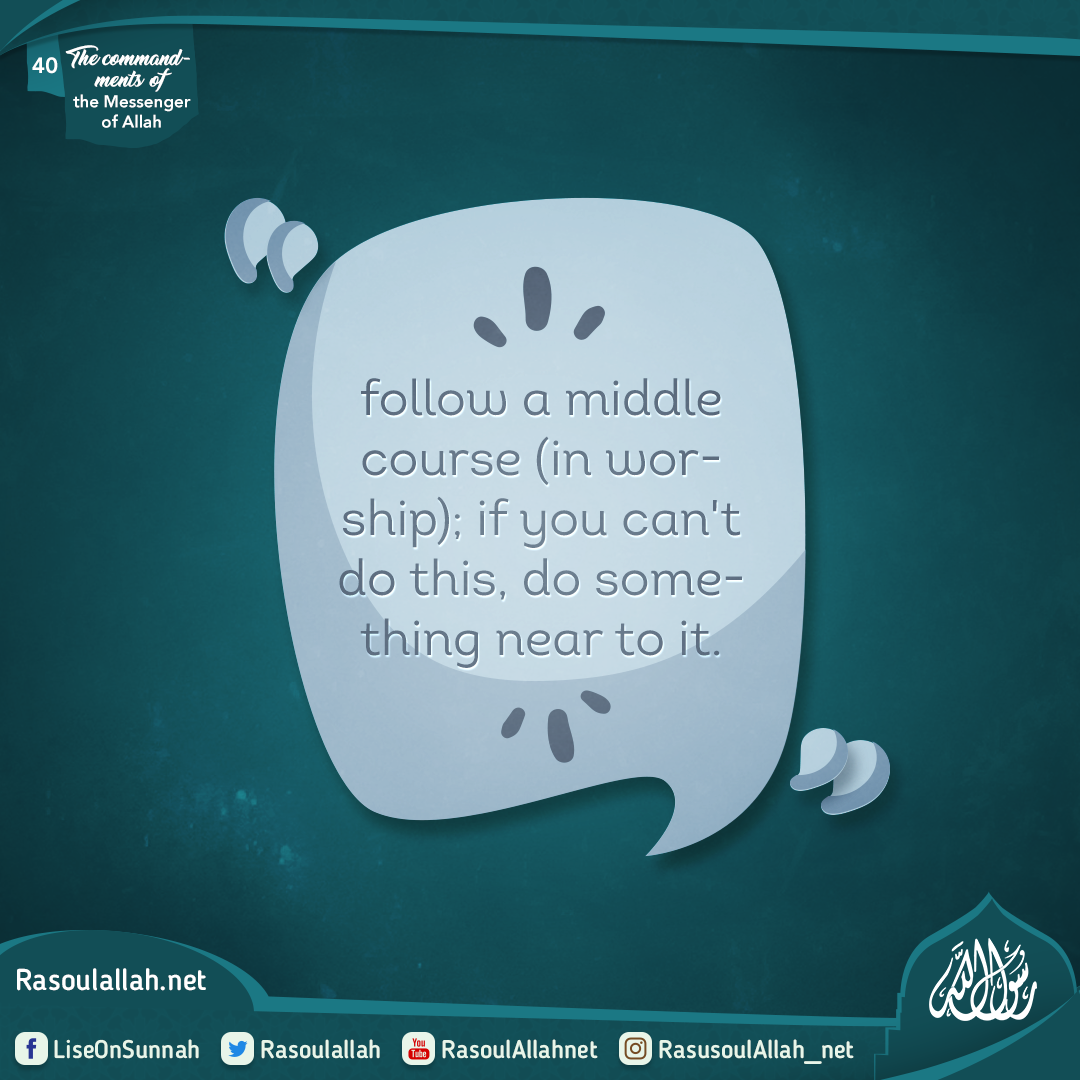follow a middle course (in worship); if you can't do this, do something near to it

`Aisha, may Allah be pleased with her, narrated that:
The Prophet, may the peace and blessings of Allah be upon him, said, " follow a middle course (in worship); if you can't do this, do something near to it, and receive good news because one's good deeds will not make him enter Paradise." They asked, "Even you, O Allah's Messenger , may the peace and blessings of Allah be upon him,?" He said, "Even I, unless and until Allah bestows His pardon and Mercy on me. Be informed that the dearest of deeds to Allah is that which done regularly even though it is little"
The Prophet, may
the peace and blessings of Allah be upon him, used to instruct his
companions to follow a middle course in worship so as to apply the verse
which means
{O you who have believed, fear Allah and speak words of appropriate justice.}
Quran (33:70)
That is
one shall stick to truthfulness in all of his acts and words. If one can
not say or do the exact truth then he shall do or say what is near that
as much as one can without overburdening oneself or distorting the
truth. It is to do one`s best to reach the truth so if one did not reach
this very aim he shall do what is near to that. For example, the
testimony should be performed on the best way, without distortion or
twisting, nor courtesy or favoring any one. It must be dedicated for the
sake of Allah, because Allah says (interpretation of the meaning):
{ and establish the testimony for [the acceptance of] Allah }
Quran (65:2).
Be committed to the strict justice, and the balance that does not vary in increase or decrease.
Therefore, only the expert in the forms of speech can really bear the testimony, he must be aware of the course of things, changing of the situation, etc. he shall have an urgent desire to realize the truth and invalidate the falsehood. Yet if one can not fulfill these very requirements he shall do his best to reach what is near to that.

